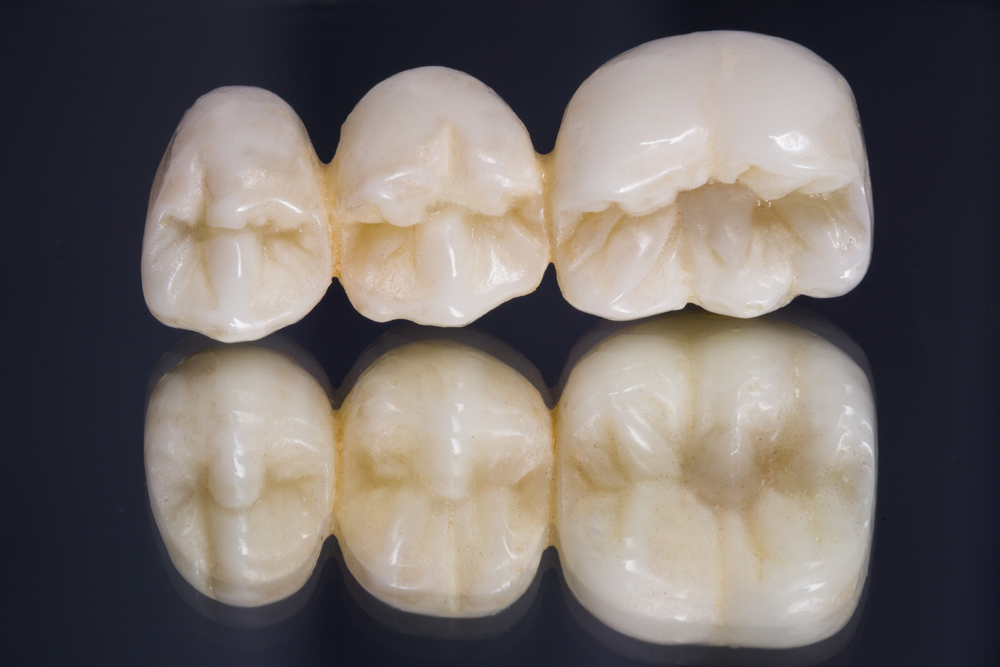Missing teeth can affect more than just your smile—it can lead to issues with chewing, speech, and even facial structure. When it comes to restoring missing teeth, two of the most popular solutions are dental implants and dental bridges. Both options offer effective ways to fill the gap, but they differ in terms of procedure, longevity, and maintenance. Understanding the pros and cons of each can help you make an informed decision about your dental care.
If you’re searching for a reliable Dental Clinic in North York, DentalX Downsview Dental Clinic is one of the best. Located at 170 Rimrock Rd., Unit D-2, North York, ON M3J 3A6, the clinic provides both tooth implants and dental bridges, tailored to meet individual needs and oral health goals.
What is a Dental Implant?
A dental implant is a titanium post that is surgically inserted into the jawbone to act as a root for a replacement tooth. Once the implant fuses with the bone (a process known as osseointegration), a dental crown is placed on top to complete the restoration.
At DentalX Downsview Dental Clinic, the procedure is handled with advanced technology and great attention to patient comfort, making it a trusted destination for Dental Care in North York.
Pros of Dental Implants:
- Long-lasting and durable
- Functions and feels like a natural tooth
- Prevents bone loss in the jaw
- Easy to maintain with regular brushing and flossing
Cons of Dental Implants:
- Requires surgery
- Healing process can take several months
- Not suitable for everyone (e.g., insufficient bone density)
What is a Dental Bridge?
A dental bridge is a non-surgical dental appliance used to replace one or more missing teeth. It works by anchoring an artificial tooth (or teeth) to the adjacent natural teeth or dental crowns. Bridges can be fixed or removable and offer a quicker, less invasive solution compared to implants.
For patients who may not be candidates for implants, Dentist in North York professionals often recommend bridges as a practical alternative.
Pros of Dental Bridges:
- No surgery required
- Shorter treatment time
- Less expensive than implants
- Restores chewing and speech function quickly
Cons of Dental Bridges:
- May require modification of adjacent teeth
- Less durable than implants
- Does not prevent bone loss in the jaw
- May need replacement after several years
Key Differences Between Implants and Bridges
| Feature | Dental Implant | Dental Bridge |
| Procedure | Surgical | Non-surgical |
| Durability | Can last decades with care | Typically lasts 5–15 years |
| Impact on Neighboring Teeth | Leaves adjacent teeth untouched | May involve filing of neighboring teeth |
| Bone Preservation | Helps maintain jawbone health | Does not prevent bone loss |
| Aesthetics | Very natural look and feel | Good, but may not match implants |
| Maintenance | Regular oral hygiene | Requires special cleaning techniques |
Which Option is Right for You?
Your choice between a dental implant and a bridge depends on several factors, including your oral health, bone density, budget, and personal preferences. If you’re missing a single tooth and want a permanent, low-maintenance solution, an implant is often the better choice. However, if you’re not a candidate for surgery or want a quicker fix, a bridge might suit your needs.
The experts at DentalX Downsview Dental Clinic offer personalized consultations to help determine the best treatment option for you. Whether you choose an implant or a bridge, rest assured you’re in capable hands.
Dental Implants in North York
For patients seeking Dental Implants in North York, DentalX Downsview Dental Clinic is a trusted name. Their experienced team uses high-quality materials and state-of-the-art technology to ensure the best outcomes. Implants are placed with precision and care, offering a lasting solution that looks and feels just like your natural teeth.
FAQs About Tooth Implants and Dental Bridges
1. Is a dental implant more painful than a dental bridge?
Dental implants involve surgery, so some discomfort during the healing process is expected. However, modern techniques and anesthesia make the procedure relatively painless. Dental bridges, being non-surgical, typically involve less discomfort.
2. How long does it take to get a dental implant?
The process can take several months, from implant placement to the final crown. Healing and osseointegration are critical for success, and your dentist will guide you through each step.
3. Can I switch from a bridge to an implant later?
Yes, many patients start with a bridge and later opt for an implant. However, jawbone condition must be evaluated before switching, as bone loss may occur over time with a bridge.
4. Which is easier to maintain—an implant or a bridge?
Implants are generally easier to maintain with regular brushing and flossing. Bridges may require special cleaning tools to reach under the pontic (false tooth) area.
5. Are both options covered by dental insurance?
Coverage varies depending on your dental insurance plan. Implants are often considered elective and may have limited coverage, while bridges are more commonly included in basic plans. Check with your provider for details.
Conclusion
Choosing between a dental implant and a dental bridge is an important decision that can impact your oral health for years to come. Both solutions offer reliable ways to replace missing teeth, each with its own benefits and considerations. By consulting with a skilled dental professional and evaluating your specific needs, you can determine the best option for restoring your smile.
Whether you’re leaning toward an implant or considering a bridge, DentalX Downsview Dental Clinic in North York provides comprehensive, patient-centered care tailored to your goals. From diagnosis to post-treatment care, their team ensures a comfortable and rewarding dental experience every step of the way.





